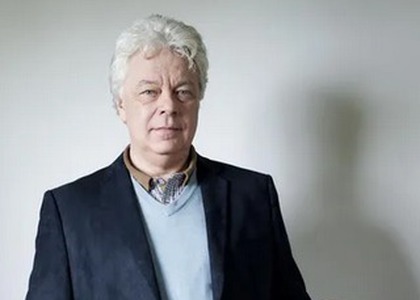> [Archived] Interviews

Interview with conductor Cristopher Warren-Green
On Wednesday, 17th of January 2024, the Orchestra of the Romanian Radio Broadcasting plays the first concert of the year. On this occasion, the conductor will once more be Cristopher Warren-Green, well-known for his involvement in major events in the life of the British Royal Family. Our colleague, Ioana Țintea, interviewed the British musician:
Mr. Cristopher Warren-Green, you will open the evening at Sala Radio with "Dumbarton Oaks" - Concerto in E-flat major for chamber orchestra by Igor Stravinsky, about which the composer himself was mentioning that it was similar to "a little concerto in the manner of the Brandenburg Concertos by Bach". How would you describe Stravinsky's score?
I would definitely describe it as Brandenburg concerto. It was ordered by Robert and Mildred Bliss, who owned the house called "Dumbarton Oaks" - now it is property of "Harvard" University. In this house, the couple hosted a meeting among the Chinese, British and Americans in 1944, which led to the foundation of the beginnings of the United Nations, in order to try preventing the start of a new war. Mildred Bliss charged Stravinsky with composing a chamber musical piece for their music hall. It is well-known that during that period, the Brandenburg Concertos by Bach were played, and Stravinsky said that he was going to compose a similar piece. This piece of work has everything in it, there are a lot of jazz influences… it is brilliant!
Moving on, I would kindly ask you to tell us more about the Piano and Orchestra Concerto No. 17 by Mozart, whose soloist will be Horia Mihail.
I have not met the soloist yet. What I know about him is that he is a wonderful performer of the Orchestra of the Romanian Radio Broadcasting, and that he has very good recommendations. I hope he likes starlings, because Mozart had such a bird as a pet. Before he bought it from the pet shop, he had taught it to sing a melody, and the theme of the last part of this concerto is specifically the same part which Mozart had trained the starling to sing.
In the end of Wednesday evening, 17th of January, you will perform Symphony No. 4 "Italian" by Felix Mendelssohn. Why such a choice?
Usually, I like to bring together Stravinsky and Mozart, but I did not want to have two Mozart compositions. So, I thought about Mendelssohn, who was influenced by Mozart, especially when it comes to this symphony, in my opinion. They work together really well. It is very bright and it became Mendelssohn's most famous symphony over time, but it was not his favourite. He did not want it to be played after its premiere, so Mendelssohn revised the score. However, we will play the original version, the one written in 1833. This symphony was written after the composer had travelled to Rome, which can be felt in his music.
How was it like to meet the musicians of the Romanian Radio National Orchestra once again?
I absolutely love this orchestra! I conducted it many years ago during the George Enescu Festival, and then I came back twice with the London Chamber Orchestra at the festival. I was glad to be invited to come here. A conductor my age wishes to go where he is wanted and where he feels he can create music with talented artists. Sometimes, when you are the first conductor of an orchestra, it might be that musicians are no longer so kind to you after a few years, and I do not blame them. But when you come as a guest conductor, you are appreciated and this is what matters the most. I like to come back here for the musicians, the staff is great, so it is a nice period for me. I am glad to be back!
Translated by Cristina-Andreea Dobre,
University of Bucharest, Faculty of Foreign Languages and Literatures, MTTLC, year I
Corrected by Silvia Petrescu














